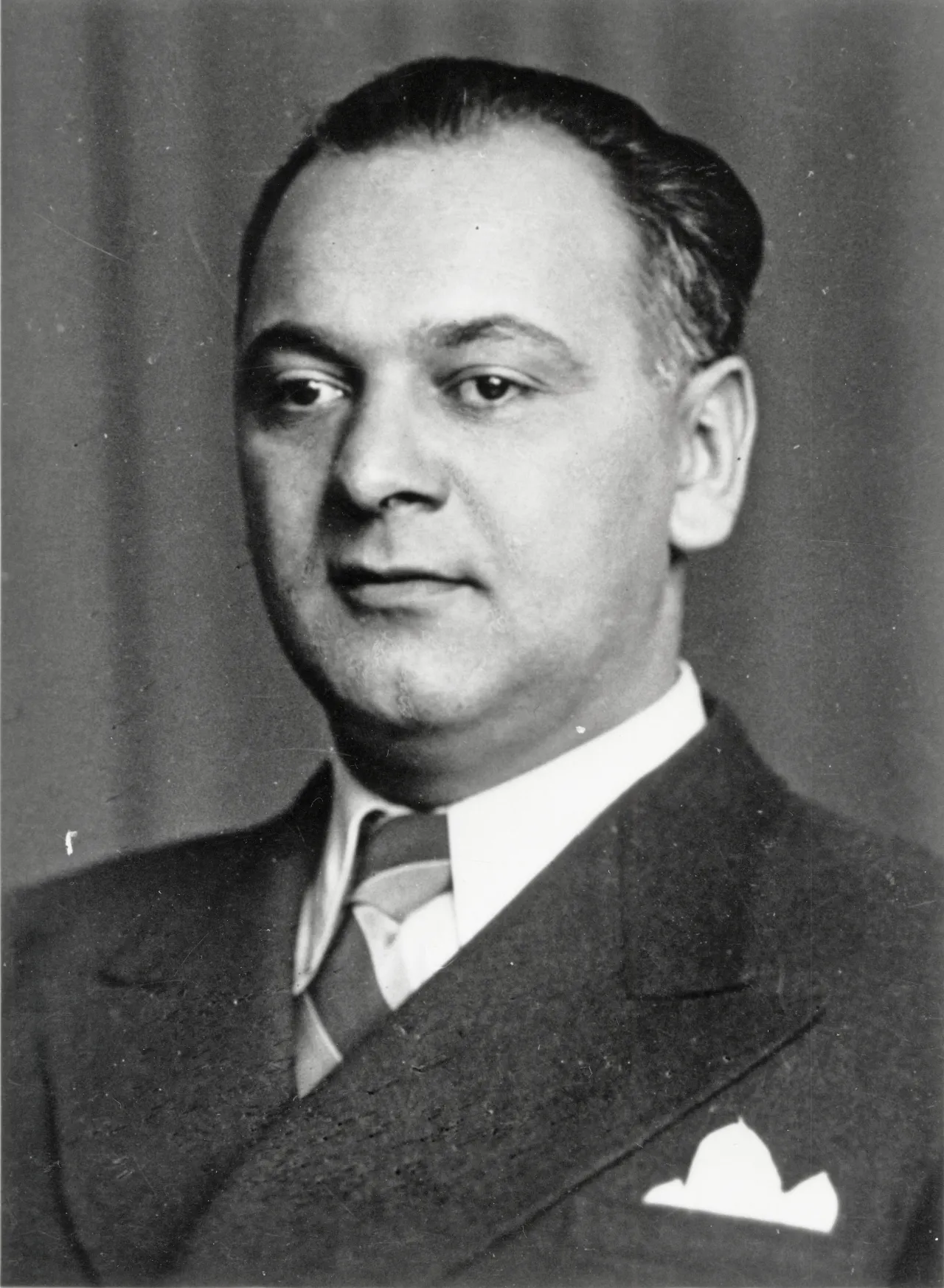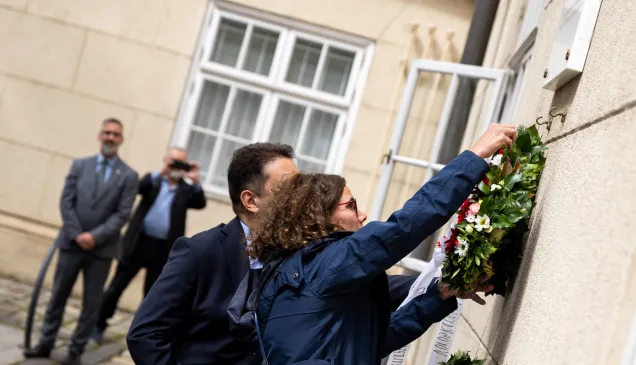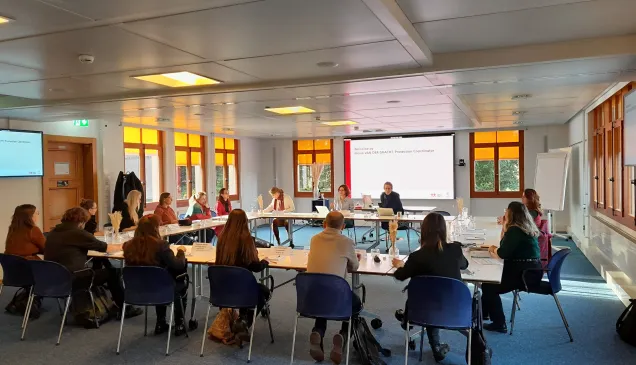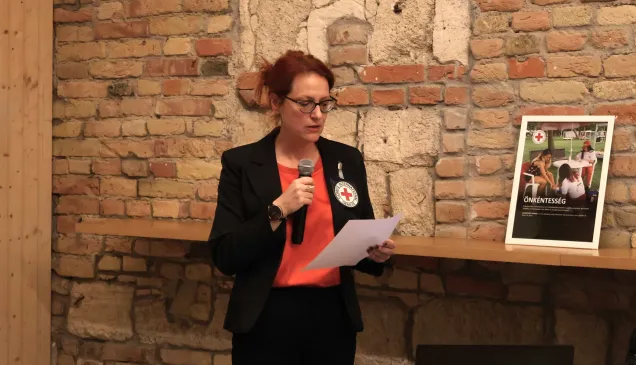Friedrich Born, the Red Cross worker who saved thousands in Hungary during WWII

Friedrich Born, a delegate from the International Committee of the Red Cross (ICRC) in Budapest from May 1944 to March 1945, spared no effort to save Jewish lives during the turbulent months near the end of World War II. He worked with a group of equally committed people to rescue thousands of Jews by granting them ICRC protection, issuing them with documents and designating buildings as ICRC-protected.
Thousands of Jews, including an estimated 7,000 children, were saved thanks to the extraordinary courage of Friedrich Born and some of his colleagues: Robert Schirmer, Hans Weyerman, Dr Horvath and other Hungarian humanitarians.
At the time, hundreds of thousands of Jews were being persecuted in Hungary, and many perished in Nazi death camps. The ICRC has publicly expressed regret on several occasions for not doing more to protect Jews and other people from extermination during World War II.
The idea of witnessing these disastrous events, powerless and unarmed, is almost unbearable.
Born's work – carried out at the risk of his own life – deserves to be remembered. He was awarded the title of "Righteous Among the Nations" by Yad Washem, Israel's Holocaust memorial authority, in 1987.

On 5 June 1987, Friedrich Born was posthumously awarded the title of ‘Righteous Among the Nations’ by the Yad Vashem Institute in Jerusalem.
Friedrich Born in Budapest: A timeline
May 1944: Friedrich Born begins working for the ICRC in Budapest
He lodges a protest with the Hungarian government regarding the deportation of Jews to Germany and Poland and decries the conditions in which they are held to the Nazi authorities. His protest is dismissed, and his requests to visit deported Jews in Germany are denied.
July 1944: At the request of the ICRC's president, the Hungarian government halts deportations, saving an estimated 15,000 lives
With the help of Lutheran pastor Gábor Sztehlo and others, Born begins establishing 60 homes for more than 7,000 children in need of protection, where food and medical care are provided by the ICRC until December 1944. An additional thousand children are housed in Pannonhalma Archabbey under the protection of the red cross emblem.
August 1944: Nazi forces resume deportations
Born proposes that all houses in Budapest inhabited by Jews be put under ICRC protection, but the proposal is rejected out of fear that protective plaques would put Jewish residents in danger.
October 1944: Following the Nazi-organized coup of 15 October, the persecution of Jews in Budapest escalates under the newly instated government
Born's renewed protests are dismissed by both the Hungarian and Nazi authorities, but he manages to obtain some small concessions. All Jewish hospitals, shelters and community kitchens are put under ICRC protection, and Born issues identity documents to some 3,000 volunteers, mostly Jews, along with documents giving them protected status. The protections granted by the ICRC are publicly recognized by the Hungarian government but not always enforced.
November 1944: Thousands of Jews bound for Germany are held in a factory on the outskirts of Budapest
The ICRC provides them with health care, medicine and 3,000 food packages daily. Born obtains a special order allowing 7,500 deportees to return to Budapest. The ICRC puts several buildings in the Budapest ghetto under its protection. It also strives to obtain concessions that would make life in the ghetto more bearable and employs 285 Jews to organize various aid activities. The ICRC also distributes food and medicine in camps and along deportation routes and collects information for Born to use in his petitions to the authorities.
December 1944: As the Soviet army advances and the Nazis attempt to move anything of value to Germany, the ICRC intervenes to save crucial infrastructure in the city
Born manages on two occasions to stop deportations from the Jewish hospital on Városmajor utca, where 154 patients, doctors and nurses are nonetheless killed on 14 January 1945.
February 1945: The ICRC runs out of supplies during the siege of Budapest, and some 7,000 children housed in 60 facilities lack food
The children are transferred to homes in Buda managed by the Church and the new city administration. The ICRC obtains food in Pest – which is taken first by Soviet troops – to continue feeding the children as the city remains cut off from the rest of the country.
March 1945: Budapest is fully under Soviet control
Left without food, medicine or money, the ICRC tries to acquire supplies from abroad. Born comes under suspicion for having maintained a neutral status and kept in contact with the Hungarian, German and Russian authorities, as well as Jewish organizations, in his attempts to help people affected by the war. He is forced to leave Budapest on 31 March 1945.



